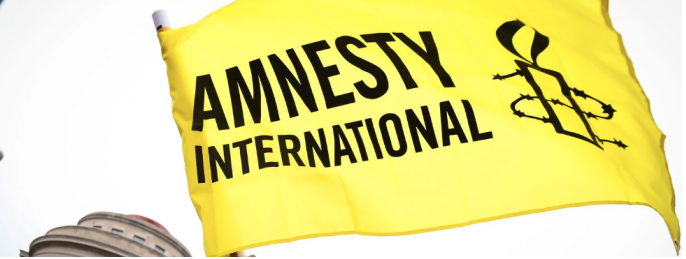With ever-growing numbers of infections and deaths from COVID-19, the removal of cumulative data on COVID-19 from Ministry of Health announcements is extremely serious, points out Amnesty International Brazil. Since the start of the pandemic, we have been warning about the lack of adequate measures by the federal government to tackle the crisis. We do not consider concealing data and facts an appropriate response to get through this difficult time.
In May, Amnesty International Brazil, together with 35 other rights organizations and social movements, launched the Our Lives Matter campaign. The objective of the campaign is for the Brazilian authorities to provide adequate and inclusive responses to address the COVID-19 pandemic without leaving vulnerable segments of the population behind.
The campaign’s recommendations include the duty of the Ministry of Health and the state and municipal health departments to guarantee the proper recording of data on cases of flu-like illness and severe acute respiratory syndrome. In addition, the health authorities must guarantee the recording of death certificates, including information about race/colour, ethnicity, gender and gender identity, address and/or the community to which people who die from COVID-19 belong. The campaign also underlines the duty of those health authorities to record the place where each infected person was attended, specifying whether it was a public or private facility and the occupation of the person treated, in order to document and highlight inequalities in access to healthcare and enable the development of strategies to guarantee equity of access.
On the subject of the analysis and dissemination of the data, the campaign notes that the health authorities must ensure that the figures contain disaggregated data to enable scrutiny by the various monitoring organizations, civil society and social movements. The compilation, analysis and publication of those data, as well as transparency in the handling of information, are fundamental for proposing and planning emergency policies, such as the construction of field hospitals, redeployment of staff and equipment to the most vulnerable regions, lockdown and social distancing measures, and the gradual easing of those measures.
The Brazilian authorities have a duty to be transparent in the publication of pandemic-related data, which are in the public interest. The ruling of Federal Supreme Court justice Alexandre de Moraes considers that full publication of those data is required pursuant to Article 37 of the Brazilian Constitution, which states that: “The direct or indirect public administration of any of the Branches of the Union, States, Federal District and Municipalities shall obey the principles of legality, impersonality, morality, publicity and efficiency…”
The vulnerable population groups for which we demand a response to COVID-19 are: favela residents, women, indigenous people, LGBTQI, especially trans people, quilombolas, migrants and refugees, homeless people, detainees, older people, children and adolescents in those various groups, the black population, and informal and self-employed workers.
About Amnesty International
Amnesty International is a global movement of more than 7 million people who take injustice personally. The organization campaigns for internationally recognized human rights to be respected and protected in Brazil and worldwide. Founded in 1961 by British lawyer Peter Benenson, its Brazilian office was opened in 2012.
For more information:
Lucy Scholey, Media Relations, Amnesty International Canada (English branch), lscholey@amnesty.ca






















